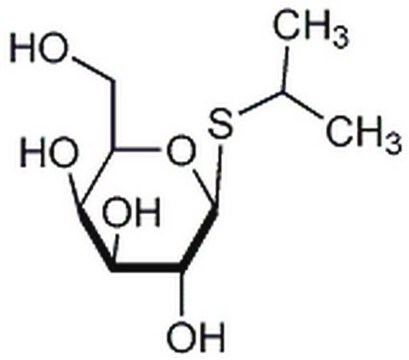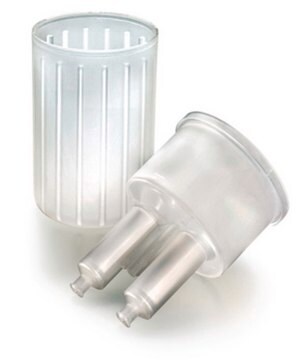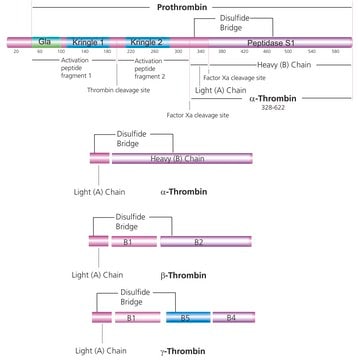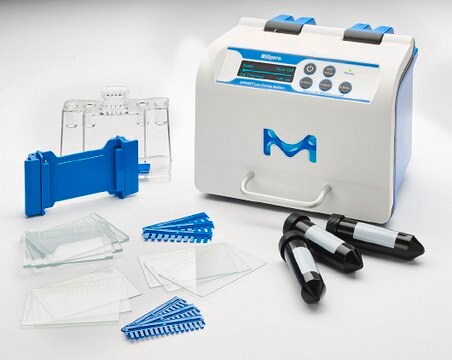MABF2237
Anti-NKp30 (CD337) Antibody
About This Item
ICC
IP
WB
activity assay
flow cytometry: suitable
immunocytochemistry: suitable
immunoprecipitation (IP): suitable
western blot: suitable
Empfohlene Produkte
Biologische Quelle
mouse
Qualitätsniveau
Konjugat
unconjugated
Antikörperform
purified antibody
Antikörper-Produkttyp
primary antibodies
Klon
1C01, monoclonal
Mol-Gew.
calculated mol wt 24.93 kDa
observed mol wt ~32 kDa
Speziesreaktivität
human
Verpackung
antibody small pack of 100 μL
Methode(n)
activity assay: suitable
flow cytometry: suitable
immunocytochemistry: suitable
immunoprecipitation (IP): suitable
western blot: suitable
Isotyp
IgG2aκ
UniProt-Hinterlegungsnummer
Versandbedingung
dry ice
Lagertemp.
-10 to -25°C
Posttranslationale Modifikation Target
unmodified
Angaben zum Gen
human ... NCR3(259197)
Allgemeine Beschreibung
Spezifität
Immunogen
Anwendung
Evaluated by Western Blotting in Human spleen tissue lysate.
Western Blotting Analysis: A 1:1,000 dilution of this antibody detected NKp30 (CD337) in Human spleen tissue lysate.
Tested Applications
Western Blotting Analysis: A 1:1,000 dilution from a representative lot detected NKp30 (CD337) in Human tonsil tissue lysate.
Function Analysis: A representative lot of this antibody blocked the binding of NKp30-Fc to β-1,3-Glucan and reduced Nkp30 clustering. (Li, S.S., et. al. (2018). Nat Commun. 9(1):751; Li, S.S., et. al. (2013). Cell Host Microbe. 14(4):387-97).
Western Blotting Analysis: A representative lot detected NKp30 (CD337) in Western Blotting applications (Li, S.S., et. al. (2018). Nat Commun. 9(1):751; Li, S.S., et. al. (2013). Cell Host Microbe. 14(4):387-97).
Immunoprecipitation Analysis: A representative lot immunoprecipitated NKp30 (CD337) in Immunoprecipitation applications ( Li, S.S., et. al. (2013). Cell Host Microbe. 14(4):387-97 ).
Flow Cytometry Analysis: A representative lot detected NKp30 (CD337) in Flow Cytometry applications (Li, S.S., et. al. (2018). Nat Commun. 9(1):751; Li, S.S., et. al. (2013). Cell Host Microbe. 14(4):387-97).
Immunocytochemistry Analysis: A representative lot detected NKp30 (CD337) in Immunocytochemitry applications (Li, S.S., et. al. (2013). Cell Host Microbe. 14(4):387-97).
Note: Actual optimal working dilutions must be determined by end user as specimens, and experimental conditions may vary with the end user
Physikalische Form
Lagerung und Haltbarkeit
Sonstige Hinweise
Haftungsausschluss
Sie haben nicht das passende Produkt gefunden?
Probieren Sie unser Produkt-Auswahlhilfe. aus.
Lagerklassenschlüssel
12 - Non Combustible Liquids
WGK
WGK 2
Flammpunkt (°F)
Not applicable
Flammpunkt (°C)
Not applicable
Analysenzertifikate (COA)
Suchen Sie nach Analysenzertifikate (COA), indem Sie die Lot-/Chargennummer des Produkts eingeben. Lot- und Chargennummern sind auf dem Produktetikett hinter den Wörtern ‘Lot’ oder ‘Batch’ (Lot oder Charge) zu finden.
Besitzen Sie dieses Produkt bereits?
In der Dokumentenbibliothek finden Sie die Dokumentation zu den Produkten, die Sie kürzlich erworben haben.
Unser Team von Wissenschaftlern verfügt über Erfahrung in allen Forschungsbereichen einschließlich Life Science, Materialwissenschaften, chemischer Synthese, Chromatographie, Analytik und vielen mehr..
Setzen Sie sich mit dem technischen Dienst in Verbindung.






